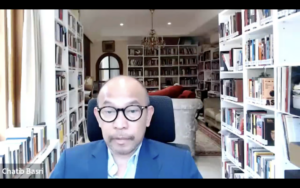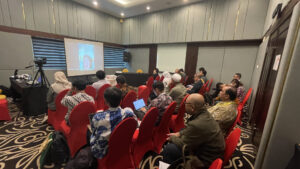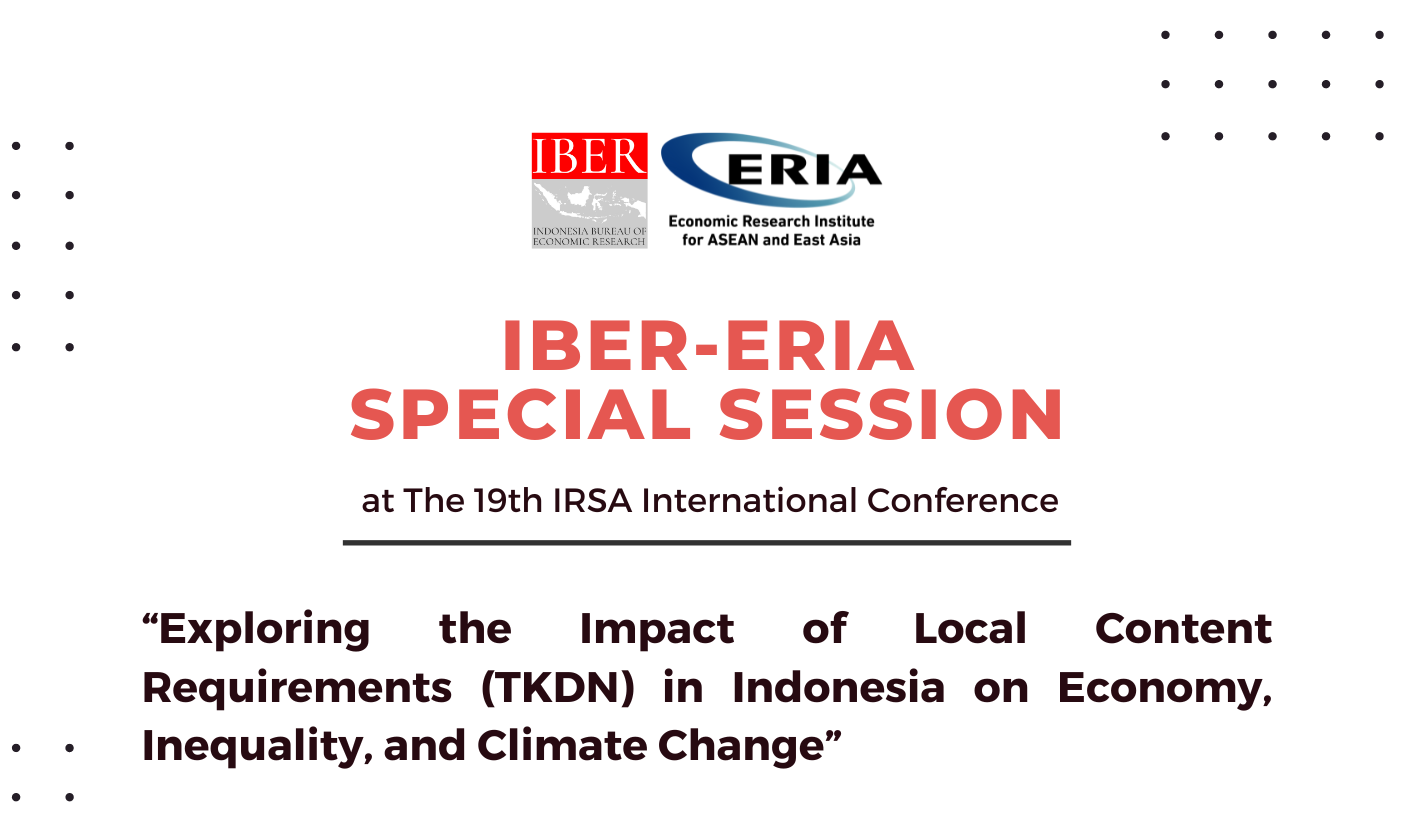[Ambon, July 16th] Indonesia Bureau of Economic Research (IBER) and the Economic Research Institute for ASEAN and East Asia (ERIA) collaborated to host a special session on the opportunities and challenges of the Local Content Requirements (LCRs) policy during the 19th International Conference of the Indonesian Regional Science Association (IRSA) held in Ambon.
The event was opened by Dr. Chatib Basri, Director of IBER, followed by a discussion session moderated by Dr. Alin Halimatussadiah. The panelists included Prof. Mari Elka Pangestu from the University of Indonesia, Dr. Yessi Vadila from ERIA, Dr. Michelle Limenta from Universitas Pelita Harapan’s Center for International Trade and Investment, and Muhammad Zeqi Yasin, a lecturer from the Faculty of Economics at Universitas Jember.
“LCRs policies can stimulate domestic industries, enhance technological capabilities, and foster innovation, but on the other hand, they may increase production costs and lead to trade disputes,” stated Chatib Basri in his opening remarks.

Chatib explained that despite aiming to boost domestic production, implementing LCRs policies is highly complex and comes with numerous consequences, necessitating thorough and careful consideration.
Mari Elka echoed similar sentiments, noting that the success of LCRs policies varies among countries. Indonesia itself abolished LCRs policies in 1995 but reinstated them after the global financial crisis in 2008.

She emphasized that enhancing domestic value added cannot be achieved by LCRs policy alone; instead, comprehensive economic engagement across all aspects is necessary for domestic industries to truly thrive under these policies.
“We need complementary policies to accompany LCRs policy, such as building local industry ecosystems and providing incentives for domestic companies through subsidies and tax reductions,” Mari concluded.

